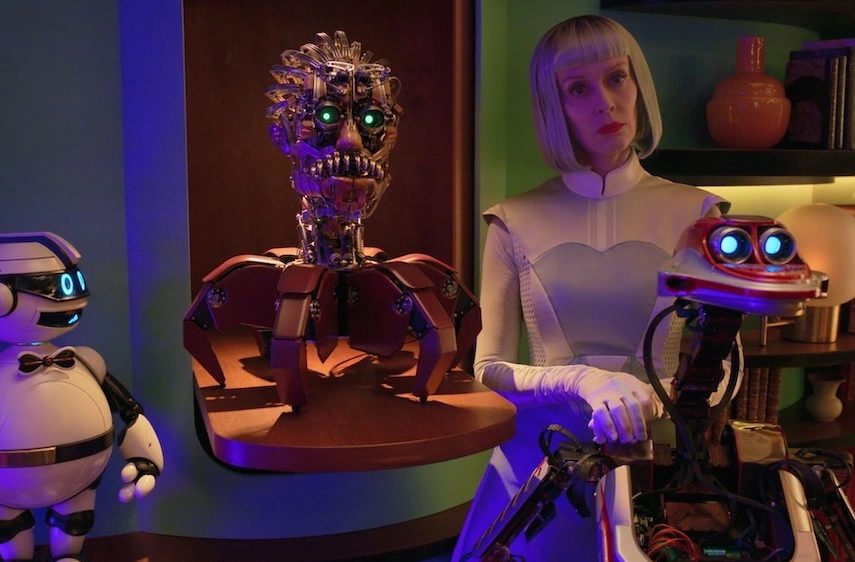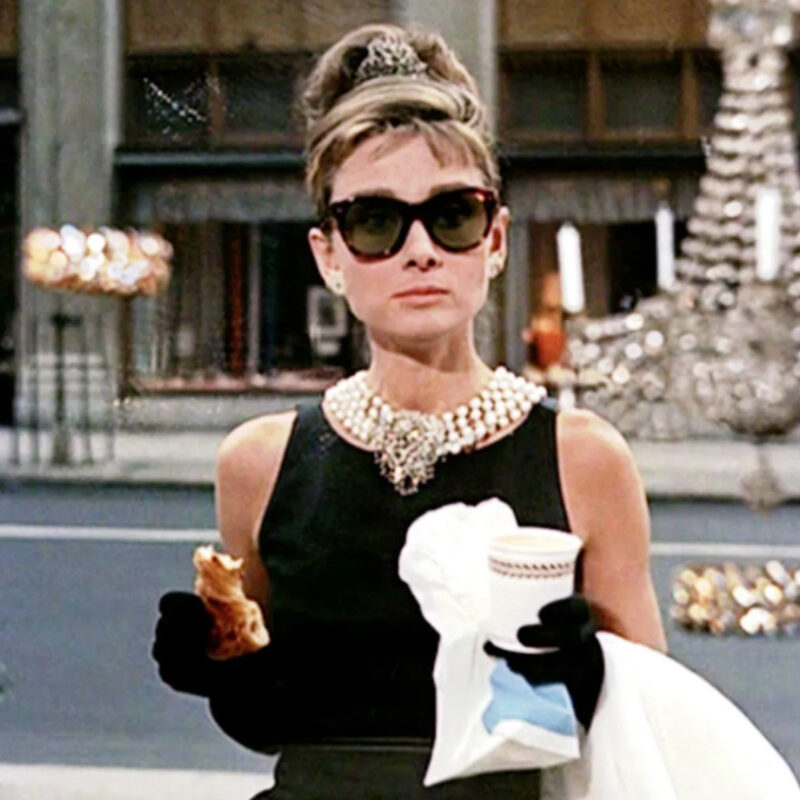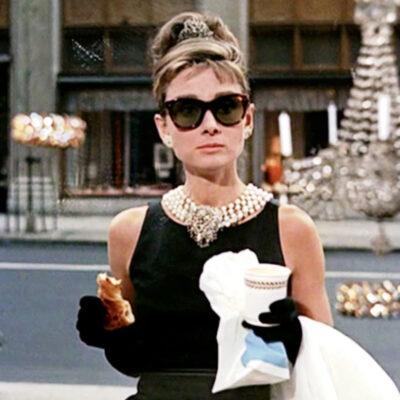If Terry Gilliam remade “The Jetsons,” it might go something like Jean-Pierre Jeunet’s Bigbug. This French science-fiction comedy takes a generally dark movie sub-genre—robot servants revolting against their human masters—and transforms it into an outwardly sunny, pastel-colored farce. The results are a hilarious, fascinating satire that’s seemingly light, but overflows with pointed observations about unchecked technological evolution at its worst.
Set in near-future France, suburban divorcée Alice (Elsa Zylberstein), her date (Stéphane De Groot), ex-husband (Youssef Hajdi), his secretary (Claire Chust), and others are sealed inside her house as malfunctioning security androids launch an insurrection outside. Meanwhile, her robotic servants faithfully try to protect their owner. (No giant insects here—the titular “bug” has infected the computer systems that manage the characters’ lives.)
Bigbug echoes—and affectionately parodies—Blade Runner, Westworld, Demon Seed, and other excellent works about artificial intelligence in revolt. Like those films, it confronts a major modern conundrum: Where does A.I. end and sentience begin? How much human-like behavior makes a robot human?
As Jeunet takes his viewers on a windy trip through the “uncanny valley” between mechanical and flesh-and-blood life, he keeps Bigbug compelling by raising dozens of intriguing questions, and offering few pat answers. But the film’s opening image—leashed human beings led on all-fours by androids—sets the tone: Our own labor-saving technology ultimately enslaves us.
Bigbug’s reviews have been mixed because it’s definitely not for everyone, especially anyone who only knows Jeunet’s breakout hit Amelie. Bigbug is more akin to Delicatessen and other off-kilter early collaborations with Marc Caro. Be warned: Some viewers will find Bigbug overly frenetic and unconventional. But for those who stick with it, it’s a rewarding and hysterical film. (Be sure to watch the French-language version—the dubbed one sounds awful.)
The point that some viewers miss is that Bigbug’s background is its foreground. The humans’ antic interactions are funny, but what’s most intriguing is Jeunet’s intricate world-building. With most of this claustrophobic story occurring inside a single house, its vision of future life unfolds through background details within this ecosystem. Alice, for instance, keeps her journal with pen and ink, which have become as obsolete as IBM punch cards.
The cast is strong, particularly Claude Perron as the robotic maid Monique and Zylberstein in the lead. The voice acting is equally good, with André Dussollier standing out as the sanguine Einstein. Keep an eye out for cameos by Jeunet movie vets like Dominique Pinon, too.
Aline Bonetto’s retro-futuristic production design is marvelous, equal parts Bauhaus and mid-century modern by way of Betty Crocker. Outstanding credit is also due to special effects supervisor Pascal Molina, robot designer Jean-Christophe Spadaccini, and visual effects directors Alain Carsoux and Jeremie Leroux for their excellent work on the non-CGI mechanical co-stars. Most notable among the robotic cast is Einstein, a scuttling, six-legged head that looks like a caricature of its namesake crafted from typewriter parts.
Bigbug isn’t a masterpiece, nor is it as good as some of Jeunet’s more recent underseen gems like Micmacs. At an hour and 51 minutes, it’s 10 minutes too long. But it’s very funny, highly imaginative and intelligent, and the kind of science fiction movie that matters most: one about ideas.
Bigbug
R, 111 minutes
Streaming (Netflix)






